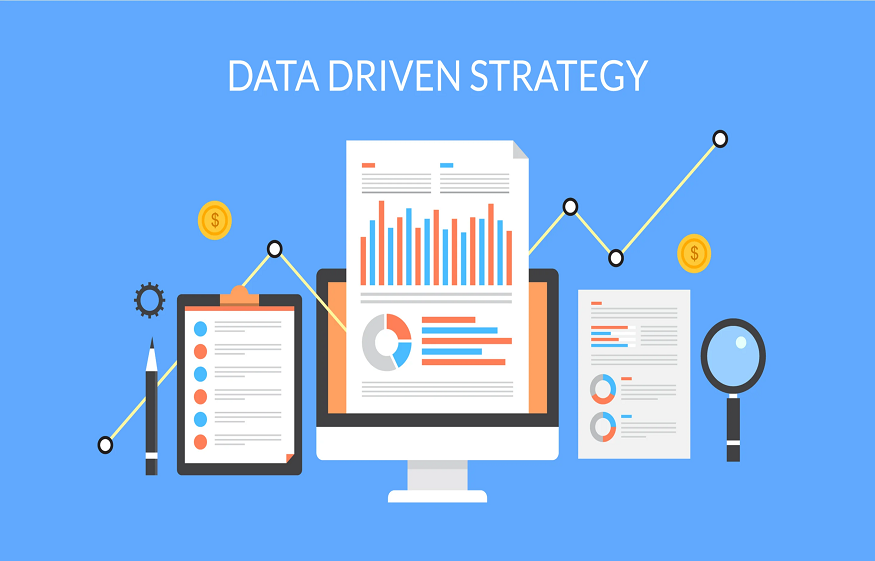Efficient queue management is crucial for businesses to enhance customer satisfaction and streamline operations. Traditional queue systems are often marred by long waiting times, frustration, and customer dissatisfaction. However, with the advent of digital queue systems and the power of analytics, businesses can revolutionize the way they manage queues and transform customer experiences. In this article, we will explore the concept of data-driven decision-making and how it can be leveraged through analytics in digital queue systems, creating a more streamlined and efficient process for virtual line management.
Understanding Digital Queue Systems:
Digital queue systems, also known as virtual line management systems, have emerged as a modern solution to optimize customer flow and eliminate the need for physical queues. These systems leverage technology to enable customers to join a virtual queue remotely, reducing waiting times and enabling a more convenient experience. By implementing digital queue systems, businesses can effectively manage customer traffic, provide real-time updates, and optimize resource allocation.
The Power of Data-Driven Decision-Making:
Data-driven decision-making lies at the core of successful queue management. By collecting and analyzing vast amounts of data generated by digital queue systems, businesses can gain valuable insights into customer behavior, patterns, and preferences. This data-driven approach allows organizations to make informed decisions that enhance operational efficiency and maximize customer satisfaction.
Optimizing Queue Allocation:
Analytics plays a crucial role in optimizing queue allocation in digital queue systems. By analyzing historical data, businesses can identify peak hours, predict customer traffic, and allocate resources accordingly. For instance, if the data reveals a surge in customer visits during lunch hours, additional staff can be deployed to minimize wait times. By leveraging analytics, businesses can ensure that the right resources are allocated at the right time, resulting in a smoother queue management process.
Enhancing Customer Experience:
Digital queue systems are designed to improve customer experience by minimizing wait times and providing real-time updates. However, analytics takes this further by enabling businesses to personalize the customer journey. Businesses can understand individual preferences and tailor their interactions by analyzing customer data. For example, if a customer frequently visits a particular store section, personalized recommendations or exclusive offers can be provided to enhance their experience. By leveraging analytics, businesses can create a customer-centric approach that fosters loyalty and satisfaction.
Real-Time Monitoring and Feedback:
Analytics in digital queue systems allows for real-time monitoring of queue statuses and customer flow. Businesses can receive instant updates on queue lengths, waiting times, and customer feedback. This real-time information empowers businesses to make timely decisions and proactively address any issues that may arise. By continuously monitoring the system, businesses can identify bottlenecks, optimize resource allocation, and ensure a seamless customer experience.
Predictive Analytics and Capacity Planning:
One of the key benefits of data-driven decision-making is the ability to leverage predictive analytics for capacity planning. By analyzing historical data, businesses can forecast future demand, estimate customer flow, and allocate resources accordingly. This proactive approach enables businesses to anticipate peak periods, optimize staffing levels, and prevent potential service disruptions. Businesses can deliver a superior customer experience by effectively planning capacity while minimizing operational costs.
Continuous Improvement through Feedback Analysis:
Digital queue systems capture valuable customer feedback, which can be analyzed to drive continuous improvement. Businesses can identify pain points by analyzing feedback data, understanding customer expectations, and implementing necessary changes to enhance the queue management process. Additionally, sentiment analysis can be employed to gauge customer satisfaction levels and identify areas that require attention. By leveraging analytics to improve the system based on customer feedback, businesses can create a virtuous cycle of continuous improvement and superior service delivery.
Data Security and Privacy Considerations
While data-driven decision-making offers numerous benefits, it is essential to address data security and privacy concerns. Digital queue systems collect significant customer data, including personal information and behavior patterns. Businesses must prioritize data security measures to protect customer data from unauthorized access and breaches. Implementing robust encryption techniques, access controls, and regular security audits are crucial to safeguarding customer information. Furthermore, organizations must comply with relevant data protection regulations, such as GDPR or CCPA, and establish transparent data handling practices to maintain customer trust.
Integration with Customer Relationship Management (CRM) Systems
Integrating digital queue systems with customer relationship management (CRM) systems can provide businesses with a comprehensive view of customer interactions and preferences. Organizations can gain deeper insights into individual customer journeys, purchase history, and preferences by combining queue data with customer profiles. This integration enables businesses to deliver personalized experiences and tailor their marketing efforts accordingly. For example, if a customer frequently uses the digital queue system to visit a particular department, the CRM system can trigger targeted promotions or recommendations related to that department, enhancing cross-selling opportunities.
Analytics for Business Process Optimization
The power of analytics extends beyond queue management in digital queue systems. Businesses can leverage analytics to optimize their overall operational processes. By analyzing data generated by the queue system, organizations can identify areas of inefficiency, bottlenecks, and opportunities for improvement. For instance, if a specific service consistently has a longer waiting time, analytics can reveal the underlying reasons and guide process redesign to reduce wait times. By continuously monitoring and analyzing data, businesses can drive continuous improvement, streamline operations, and increase productivity.
Conclusion:
Ready to unlock the power of data-driven queue management? Introducing NEMO-Q, the cutting-edge solution that revolutionizes how businesses manage their digital queues. With data-driven decision-making at its core, NEMO-Q empowers organizations to optimize queue allocation, enhance customer experiences, and make informed choices for capacity planning.
Embrace the era of data-driven insights and gain a competitive edge. Streamline your operations, deliver exceptional customer service, and stay ahead of the game in today’s digital landscape.
Ready to transform your queue management system? Take the leap with NEMO-Q and unlock a world of possibilities. Contact us today to learn more and schedule a demo.





